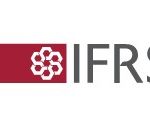In a joint announcement today, the
parties to Kasky v. Nike, a lawsuit which prompted a U.S. Supreme Court
review exploring the question of what constitutes free versus commercial
speech, have agreed to settle the case. The two parties mutually agreed that
investments designed to strengthen workplace monitoring and factory worker
programs are more desirable than prolonged litigation.
As part of the settlement, Nike has agreed to make additional workplace-related program investments (augmenting the company’s existing expenditures on monitoring, etc.) totaling $1.5 million. Nike’s contribution will go to the Washington, D.C. based Fair Labor Association (FLA) for program operations and worker development programs focused on education and
economic opportunity.
In addressing the settlement terms, Patrick Coughlin, attorney for the plaintiff stated, "Ultimately, both Nike and Mr. Kasky agreed that this resolution benefits two key groups: factory workers and consumers worldwide.
Given the FLA’s collaboration across a wide spectrum of companies, universities and NGOs, it is an excellent vehicle for Nike to further develop its corporate responsibility efforts and allow interested consumers to measure the performance of Nike and other companies through public reporting. Mr. Kasky is satisfied that this settlement reflects Nike’s commitment to positive change where factory workers are concerned."
Over the next three years, the funds will specifically address three primary areas:
* Increased training and local capacity building to improve the quality of independent monitoring in manufacturing countries
* Worker development programs focused on education and economic opportunity, and
* Multi-sector collaboration to advance a common global standard to measure and report on corporate responsibility performance among companies
Nike also agreed to maintain its existing funding commitment to its after-hours worker education programs in its footwear facilities and micro-loan programs at a minimum of $500,000 over the next two years.
Incorporated in 1999 out of the White House task force known as the Apparel Industry Partnership, the FLA promotes adherence to its code of conduct based on international labor standards, conducts independent monitoring of labor practices in supplier factories by accredited monitors and coordinates public reporting of the findings. Its membership includes 179 colleges/universities, prominent human rights organizations, consumer groups and participating companies.
The FLA also issues an annual report on its monitoring results of each participating member company, including Nike, with the company’s plan for remediation of non-compliant conditions. The first annual FLA report was issued in June 2003 and may be found at www.fairlabor.org.
During the next three years, the FLA will maintain sole discretion to direct expenditures of the settlement dollars. It is anticipated that most of the proceeds will be disbursed to programs that build local capacity for independent monitoring and remediation of compliance issues based on the
core labor standards of the U.N.’s International Labour Organization (ILO) based in Geneva, Switzerland.
"This contribution will be beneficial towards our core mission of improving workers’ lives by increasing our monitoring, remediation and training capabilities," said Auret van Heerden, the FLA’s Executive Director. "The proceeds of the settlement will also be a long-term plus for corporate accountability and improved consumer information."
The balance of the $1.5 million contribution will be used to fund worker development programs that are focused on education, investment in worker training and skills development, and entrepreneurial activity within factory communities where workers and their families live.
"We have learned a great deal in the five years since this case was first filed about the challenges we and others face in addressing issues in manufacturing environments. Our approach to addressing these issues, our business and stakeholder engagement are continually evolving, " said Maria
Eitel, Vice President and Senior Advisor, Corporate Responsibility at Nike. "Nike’s integration of corporate responsibility into the framework of its business is integral to who we are as a company."
Jim Carter, Nike’s Vice President and General Counsel, indicated that although an amicable settlement was reached in this case, the company has heard from many other corporations, media organizations and non-government organizations, who remain concerned about the impact of the California Supreme Court ruling on transparency — specifically companies who wish to
report publicly on their progress in the areas of corporate responsibility.
Due to the potential difficulties posed by the application of California Statute section 17200, Nike has decided not to issue its corporate responsibility report externally for its fiscal year 2002 and will continue to limit its participation in public events and media engagement in California.
However, Nike will continue to advocate for corporate transparency and both parties agreed that a portion of the settlement should explore supporting a multi-sector collaboration on the further evolution of a common global reporting standard and a universally applied process for corporate
accountability. The FLA will dedicate a portion of the settlement funds to this purpose that will hopefully address the consumer’s desire for better information to measure company performance and public policy concerns regarding uniform standards.
Procedural history of the case Kasky v. Nike has had a long procedural history since its initial filing in April, 1998. No court has ever addressed the truth or falsity of any of Nike’s statements, and no liability is admitted in the settlement.
After dismissal of the case by the California Superior Court and an affirmation of the dismissal by the California Court of Appeal, an appeal to the California Supreme Court resulted in a reversal in plaintiff’s favor. The issue before the California courts was centered on Nike’s defense that
the First Amendment (Free Speech) of the US Constitution protected Nike from claims being made by the plaintiff. The case was accepted by the US Supreme Court initially and then dismissed on June 26, 2003 as premature. The case was recently returned to the trial court in California.



